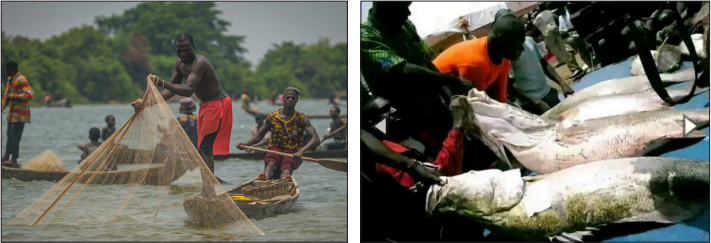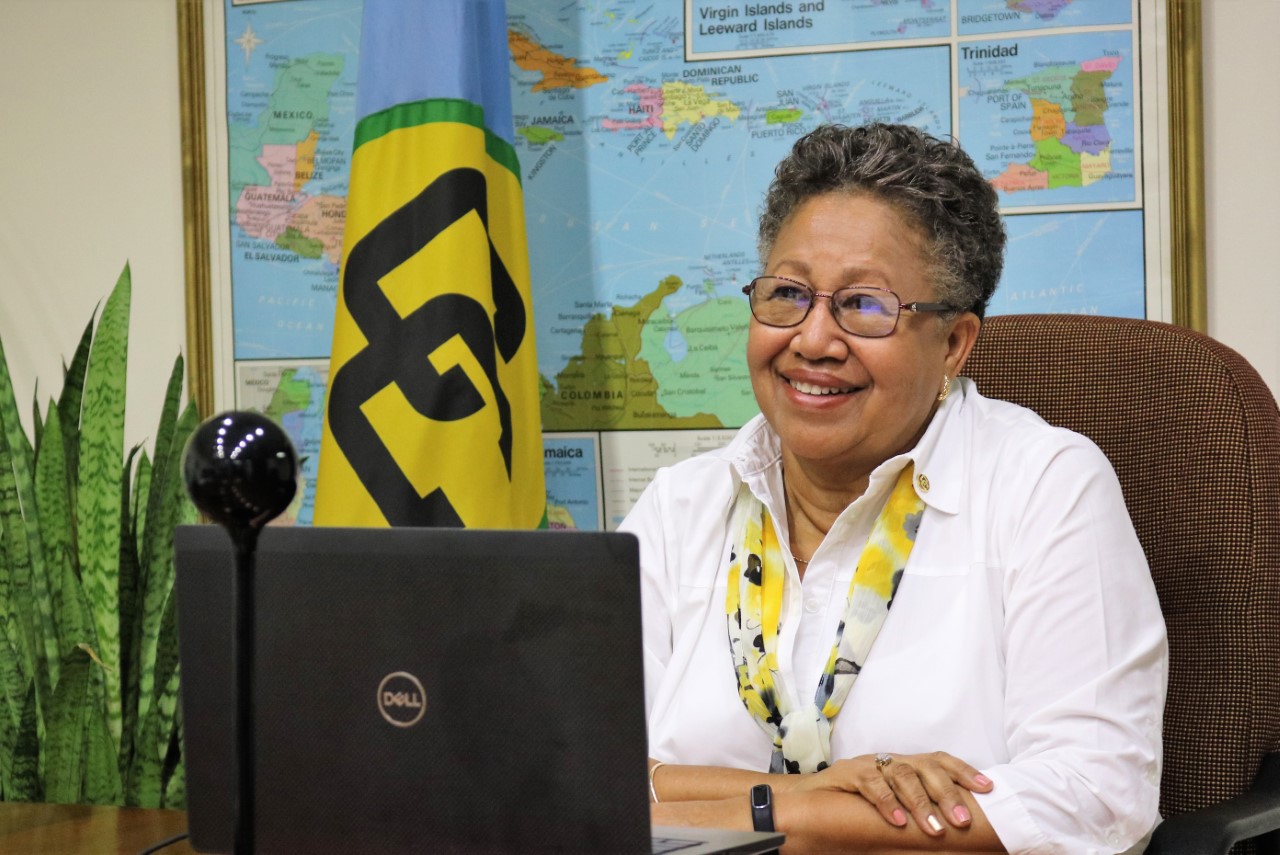Environment
Nwonyo Fishing Festival: A Vibrant Celebration Of Tradition And Unity In Nigeria

In the heart of Taraba State, Nigeria, the Ibi community comes alive every year with the Nwonyo Fishing Festival, a centuries-old tradition that’s a feast for the senses! This iconic event has been celebrated for over 90 years, showcasing the Ibi people’s exceptional fishing skills and fostering unity among neighboring communities.
The festival’s rich history dates back to 1816 when Buba Wurbo, the founder of Ibi, discovered the majestic Nwonyo Lake. This sacred body of water is home to an array of aquatic life, including crocodiles, snakes, and hippopotamuses, earning its name “Nwonyo” or “Hide-out for huge and dangerous aquatic animals.” The lake’s reputation as a sanctuary for these creatures has been passed down through generations, with two myths offering additional meanings: “under the locust bean tree” and “abode of the snake” in the Jukun language.
Initially, the lake served as a vital fishing source for the local fishing and farming communities. However, Buba Wurbo transformed it into a festival venue, and the first public fishing festival took place during the reign of Abgumanu II (1903- 1915). Mallam Muhammadu Jikan Buba, the Chief of Ibi, appointed Mallam Muhammadu Sango as the custodian of the lake (Sarkin Ruwa) in 1943, ensuring the lake’s conservation and the festival’s continued success.
The festival features a range of activities, including swimming competitions, dance and music performances, singing contests, boat regattas, and masquerade demonstrations. Participants use canoes to fish, avoiding dangerous aquatic animals. Over the years, the festival has seen impressive fish catches, with records being set and broken. In 1970, the largest catch weighed 60 pounds, increasing to 175 pounds in 1971 and 124 pounds in 1973. In 2010, Mr. Bulus Joshua set a new record with a 318-kilogram catch!
The festival has attracted notable figures, including Governor Joseph Gomwalk of Benue/Plateau State and Col. Theophilus Danjuma, and has gained national recognition. In 2008, Governor Danbaba Danfulani Suntai revitalized
the festival, establishing the Taraba State Tourism Development Board (TSTDB) to oversee its organization. The 2009 edition saw dignitaries like Senate President David Mark and Governor Suntai in attendance, with corporate sponsors like MTN and Zenith Bank adding to the festival’s grandeur. In 2024, the festival was reignited by Governor Agbu Kefas, with Rtd. General TY Danjuma presenting a refurbished Honda Hennessy to the winner of the largest catch, marking a new chapter in the festival’s storied history.
The Nwonyo Fishing Festival is a testament to the power of tradition, unity, and community spirit, showcasing the rich cultural heritage of the Ibi people and the importance of conservation and sustainable fishing practices. As the festival continues to grow and flourish, it remains a beloved national event, attracting visitors from across the country and beyond.”
Environment
Hurricane Melissa: CARICOM Reaffirms Support for Jamaica, Haiti

Hurricane Melissa: CARICOM Reaffirms Support for Jamaica, Haiti
CARICOM Secretary-General, Dr Carla Barnett, has restated the Community’s solidarity with Jamaica and Haiti following the devastation caused by Hurricane Melissa, saying the disaster reinforces the urgent need to strengthen regional resilience against climate change.
Dr Barnett made the remarks at the opening of the 61st Regular Meeting of the Council for Trade and Economic Development (COTED), where she also highlighted the importance of the CARICOM Single Market and Economy (CSME) in supporting sustainable growth amid recurring climate shocks.
She expressed sympathy to the Governments and people of Jamaica and Haiti over the loss of lives and widespread damage caused by the storm.
She commended the response of regional bodies, including the Caribbean Disaster Emergency Management Agency (CDEMA), the Caribbean Public Health Agency (CARPHA), private sector groups and other regional partners.
The Secretary-General also referenced the recent visit of four CARICOM Heads of Government to Jamaica as a strong demonstration of regional unity and a signal of continued support.
“The experience leaves us in no doubt about the urgency of addressing the existential threats posed by climate change and the need to redouble our efforts to build resilience and foster sustainable development across our Region,” she said.
“Strengthening our trade and economic performance is a critical part of this, and COTED must continue to play its important role in this regard.”
Chairing the meeting, Belize’s Minister of State for Foreign Trade, Hon. Marconi Leal, noted that the Region was dealing with complex global and domestic challenges that continue to test the resilience of individual Member States.
He said Hurricane Melissa further exposed the Caribbean’s vulnerability to climate threats, stressing the need for deeper cooperation and coordinated recovery efforts.
Minister Leal said COTED would deliberate on critical issues, including advancing the free movement of CARICOM nationals, implementing the Community’s Industrial Policy and Strategy 2035, and support measures under Article 164 of the Revised Treaty of Chaguaramas.
The 61st Regular Meeting of COTED reaffirmed CARICOM’s commitment to strengthening regional trade, deepening economic integration and advancing sustainable development across the Community.
Environment
Spain Introduces Disaster Preparedness Lessons for Children

Spain Introduces Disaster Preparedness Lessons for Children
In a bold move to strengthen climate resilience, Spain has announced compulsory disaster preparedness lessons for schoolchildren across the country.
The initiative, unveiled on Thursday by the Spanish government, is designed to equip children with knowledge and survival skills in the face of floods, wildfires, earthquakes and volcanic eruptions, which experts say are becoming more frequent due to the worsening climate emergency.
The development comes after a summer of devastating forest fires claimed four lives, and less than a year after catastrophic floods left more than 220 people dead in eastern Spain.
According to the Ministry of Education, the new programme will cover not only natural disasters but also industrial, nuclear and chemical accidents, as well as emergencies involving the transportation of hazardous materials.
Over 8 million pupils in 25,000 schools will benefit from the compulsory training, which will begin this academic year.
Lessons will be delivered through videos, infographics and other teaching tools, with children in infant and primary schools receiving a minimum of two hours, while older students will undergo at least four hours.
“Infant school children aged three, four and five will learn to recognise alarms and spot early signs of danger, as well as basic safety principles,” the ministry said in a statement.
“Older children will be taught how to seek higher ground during floods and to take cover under desks during earthquakes.”
The ministry added that students would also be educated on identifying disinformation during emergencies, a growing concern in the digital age.
Speaking at the launch in Cuenca, Prime Minister Pedro Sánchez stressed the importance of preparing young people to face disasters worsened by climate change.
“If we don’t want to bequeath our children a Spain that’s grey from fire and flames, or a Spain that’s brown from floods, then we need a Spain that’s greener,” Sánchez declared on September 1, calling for a “great state pact” to tackle the climate crisis.
The lessons form part of a 10-point government plan to safeguard Spain, which experts say lies on the frontline of Europe’s climate challenges.
Environment
Pacific Island Nations Lead the Charge in Climate Action

Despite contributing a mere 0.03% to global greenhouse gas emissions, Pacific Small Island Developing States (PSIDS) are setting a powerful example in climate leadership.
A new report by the UN Climate Change Regional Collaboration Centre for Asia and the Pacific reveals that these nations are making significant strides in meeting the goals of the Paris Agreement.
The 14 PSIDS have demonstrated their commitment to reducing emissions and promoting sustainable development.
All 14 countries submitted their first round of Nationally Determined Contributions (NDCs) by the end of 2015, with 11 submitting updated or enhanced versions since then.
These NDCs outline ambitious targets in renewable energy, sustainable transport, and nature-based solutions.
Six PSIDS aim for 100% renewable energy, showcasing a commitment to reducing dependence on fossil fuels.
Countries are also exploring eco-friendly transportation options to minimize emissions and initiatives focus on preserving and restoring natural ecosystems to mitigate the effects of climate change.
The Pacific Island nations are reframing climate ambition as a regional issue, intersecting with identity, sovereignty, and development.
The 2050 Strategy for the Blue Pacific Continent highlights the importance of ocean-based solutions and regional collaboration.
Several countries in the region are taking bold steps to address climate change.
Fiji was the first country to ratify the Paris Agreement and preside over a UN Climate Conference (COP 23).
The Marshall Islands was an early submitter of Intended Nationally Determined Contributions (INDC) and has integrated youth participation and Indigenous knowledge into its national climate agenda.
Papua New Guinea was the first to formally submit an NDC, with a target of 100% renewable energy by 2030.
Vanuatu is committed to rapidly phasing out fossil fuels and transitioning to a circular economy, with NDC targets conditional on scaled-up international support.
As the global community prepares for the third round of NDCs, the Pacific Island nations offer a clear message: the next generation of NDCs must aim higher and go further, turning ambition into action and action into survival.
With climate change posing existential threats to these nations, their commitment to limiting warming to 1.5°C is not just about reducing emissions – it’s a matter of survival.
-

 Milestone7 days ago
Milestone7 days agoChief Chukwuma Johnbosco and the Making of a Purpose-Driven Leader
-

 Sports1 week ago
Sports1 week agoBritish-American Duo Win First Grand Slam Together in Melbourne
-

 News7 days ago
News7 days agoUS Sends Troops to Nigeria Over Rising Terror Threats
-

 Sports1 week ago
Sports1 week agoEx-Sri Lanka Star Jayasuriya Named in USA Squad for T20 World Cup
-

 Sports1 week ago
Sports1 week agoLens Edge Le Havre to Reclaim Ligue 1 Top Spot
-

 Sports1 week ago
Sports1 week agoJustin Rose Sets 36-Hole Record, Opens Four-Shot Lead at Torrey Pines











